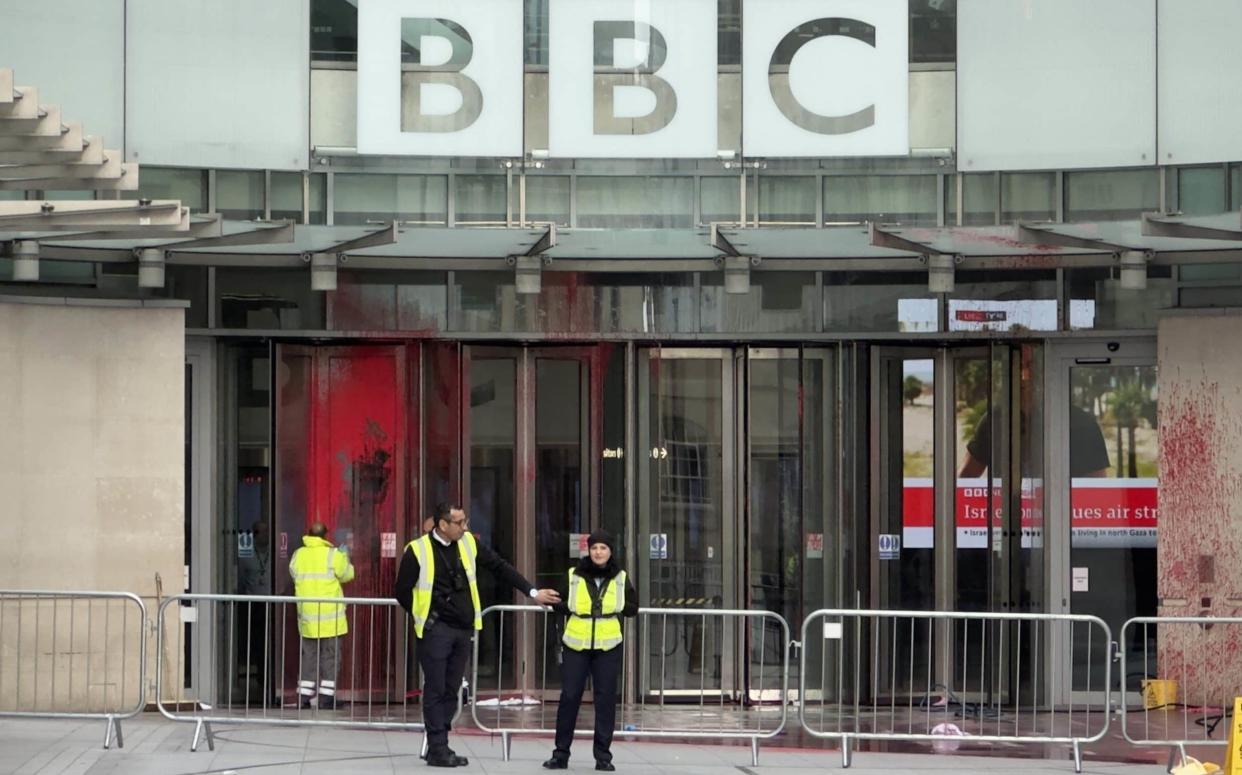The BBC is as fair as it can be in its Israel-Gaza coverage

My dear Danny – First, let me thank you for your generous comments about me in your opinion piece in The Telegraph. I don’t think I’ve ever been involved in a public dispute more courteous!
There are clear points of disagreement between us, though. As a former top executive in the BBC, you’ve written a series of articles in this paper maintaining that the BBC’s reporting of the crisis since the Hamas attacks of October 7, has failed in its duty of impartiality, balance and accuracy. I strongly disagree.
I’m not a BBC boss – I’m a reporter who, among other things, has a lot of experience of Israel, Gaza and the West Bank. So I’m not giving you the official, corporate response, but the view of someone who knows what it’s like to report from the ground as well as to sit in a studio, broadcasting live.
Yes, there have been mistakes; in all the thousands of broadcasting hours the BBC has devoted to the Gaza crisis since 7 October, it’d be amazing if there weren’t. There was the snap judgement of a correspondent who speculated that Israel had launched the missile which hit Gaza’s al-Ahli Arab Hospital and the suggestion by a BBC presenter to a former Israeli prime minister that the Israeli forces were “happy to kill children”. Plus there was the interview with Lord Cameron, when Nick Robinson said “Israel attacks and murders tens of thousands of innocent Palestinians”.
It was obvious Nick was quoting the view that many British people – a majority, according to polls – hold about Israel’s operations in Gaza. If he’d used the same words about Hamas, I don’t suppose anyone would have raised an eyebrow. Did you see the interview on one BBC programme when a leading Hamas figure was asked how he could justify “killing people as they sleep”? He tore off his mic and stormed out of the studio. I didn’t hear any complaints about the BBC’s lack of impartiality then.
We’ve made mistakes on the other side too, and in fact slightly more people think the BBC is actively pro-Israel than anti-Israel. We can’t be both, can we? As for the country as a whole, audience research shows that a big majority of viewers and listeners think the BBC is by far the most trusted provider of impartial coverage of the war in Gaza.
Which brings me to the key problem I have with your criticisms. I suspect that, rather than wanting the BBC to be impartial and balanced as between Israel, Hamas, and Iran, you actually want the BBC to side with Israel: to accept without question the huge disparity between the numbers of Israeli and Palestinian deaths (something like 25 Gazans for every Israeli killed on 7 October). Hamas is brutal as well as corrupt. But the wholesale destruction of Gaza, the uprooting of its people and the hunger they have endured aren’t things that we can just ignore in our broadcasts.
I came in for a lot of criticism last October, when I explained why the BBC doesn’t describe Hamas as a terrorist organisation. Downing St attacked me. So did Israel’s President, Isaac Herzog – which was particularly sad, since I used to know his father Chaim, also President of Israel, who, being Irish originally, liked to talk to me about comparisons between the Palestinian issue and Northern Ireland. He, at least, fully understood when I explained why we didn’t call either the PLO or the IRA ‘terrorists’.
As you know, some politicians and some newspapers are much given to attacking the BBC’s credibility. Your criticisms have a particular force, given your former BBC job. A sizeable proportion of British Jews now apparently believe the BBC is biased against Israel. These articles of yours must have encouraged that view.
I promise you, the BBC puts huge effort into staying impartial. When I broadcast about Gaza, or anything else, on my programme ‘Unspun World’ on BBC Two, my scripts are checked for accuracy and balance by three different people. That’s usual in the BBC. Live broadcasting is different, and impossible to vet beforehand; but every BBC person who goes on a live news programme knows the critical importance of playing it straight. Our overriding aim is that every one of our 440 million viewers, listeners and readers around the world should know they can believe us and trust us. And of course this includes the Jewish community in Britain.
I’m really sorry that you believe we fail in this, but my colleagues and I genuinely do our utmost to be entirely balanced and honest. Exactly as we did when you were in charge of BBC One.
John Simpson is the BBC’s world affairs editor. He presents ‘Unspun World’ on BBC Two, which starts a new season next month

